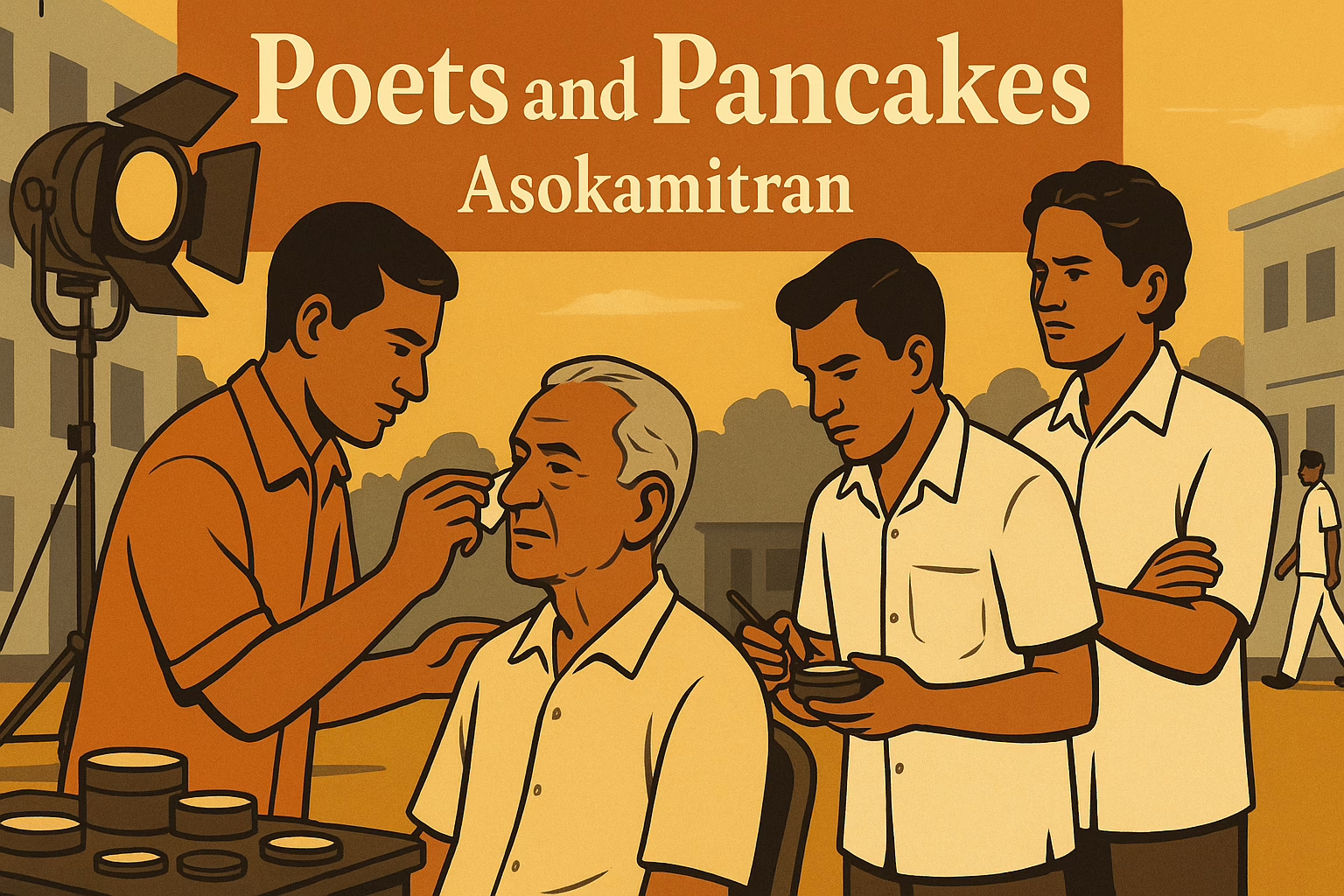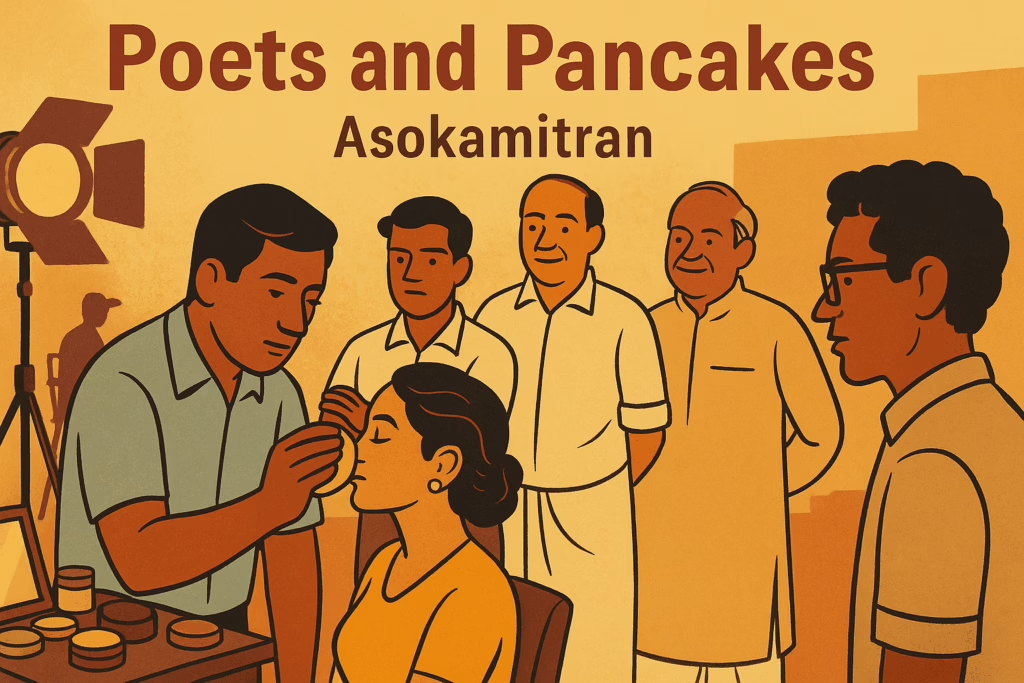SUMMARY — Poets and Pancakes
“Poets and Pancakes,” written by Asokamitran, is a humorous and insightful account of his experiences at Gemini Studios, one of the most influential film studios of India in the 1940s and 50s. The chapter reveals the inner working of the studio, the people who worked there, and the strange mixture of glamour, monotony, creativity, and confusion that characterised early Indian filmmaking.
The narrative begins with a vivid description of the make-up department located in a small building called the “Pancake” room. Thick layers of make-up, applied under scorching lights, turned actors into unnatural creatures, symbolizing the artificiality of the industry. The author humorously notes the diversity of the department, calling it an example of “national integration.”
He introduces the frustrated office boy, who once dreamed of becoming a star but ended up applying make-up to crowd actors and blaming Subbu—the studio’s multi-talented, loyal lieutenant—for his own failures. Subbu emerges as the studio’s second-in-command, gifted with ideas, writing talent, and acting skills, though resented by some for his success.
The author then shifts to other characters, such as the Legal Adviser, whose unnecessary interventions once ruined an actress’s career. The chapter highlights the simplistic political understanding of the studio staff, who admired Gandhiji but knew little about Communism.
A major episode describes the visit of an English poet whose speech left everyone confused. Only years later did the author discover, through The Encounter magazine, that the mysterious visitor had been Stephen Spender.
Overall, the chapter blends humour, gentle irony, and personal reflection to portray the world of Gemini Studios and the often-overlooked lives of the people behind the scenes.
About the Author — Jagadisa Thyagarajan (Asokamitran)
Jagadisa Thyagarajan, better known by his pen name Asokamitran (1931–2017), was a celebrated Tamil writer, novelist, and columnist whose quiet, observant style made him one of the most influential voices in modern Indian literature. He wrote extensively—over 200 short stories, memoirs, novels, and essays—capturing the humour, ironies, and emotional subtleties of everyday life.
Asokamitran spent more than a decade working at Gemini Studios in Chennai, an experience that deeply shaped his literary works. His keen eye for detail and gentle satirical tone allowed him to portray the inner workings of the film industry with authenticity and charm. Poets and Pancakes reflects his unique ability to blend personal experience with sharp social observation, making his writing both entertaining and insightful.
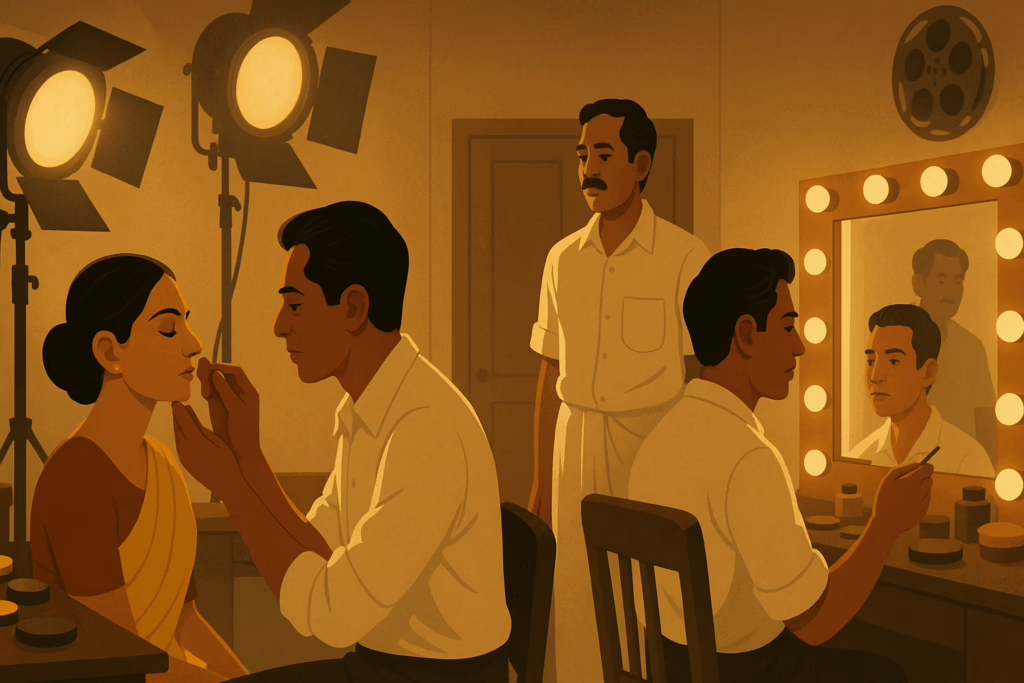
Textual Questions and Answers
THINK AS YOU READ — Page 58
1. What does the writer mean by “the fiery misery of those subjected to make-up”?
The writer means that the actors and actresses had to sit under extremely hot incandescent bulbs while thick layers of pancake make-up were applied to their faces, making the experience physically uncomfortable and almost unbearable.
2. What is the example of national integration the author refers to?
The author refers to the make-up department, which consisted of people from various regions—Bengali, Maharashtrian, Dharwar Kannadiga, Andhra, Madras Christian, Anglo-Burmese, and local Tamil workers—showing a diverse mix of Indians working together long before AIR and Doordarshan promoted national integration.
3. What work did the ‘office boy’ do? Why did he join the studios? Why was he disappointed?
The office boy was responsible for doing the make-up of the crowd-players on shooting days. He had joined Gemini Studios hoping to become a star actor, screenwriter, or director, but instead ended up doing menial tasks, which deeply disappointed him. He falsely believed Kothamangalam Subbu was responsible for his failure.
4. Why did the author appear to be doing nothing at the studios?
The author worked in a cubicle tearing newspapers and filing clippings, a task that looked trivial to others. Because people saw him only cutting papers, they assumed he had no significant work.
THINK AS YOU READ — Page 60
1. Why was the office boy frustrated? Who did he show his anger on?
The office boy was frustrated because he felt his creative ambitions had been wasted in a department fit only for barbers and perverts. He blamed all his misfortune on Subbu and directed his bitterness toward him.
2. Who was Subbu’s principal?
Subbu’s principal was the Boss of Gemini Studios, S.S. Vasan, to whom Subbu showed complete loyalty.
3. Subbu is described as a many-sided genius. List four of his special abilities.
- He could produce dozens of creative ideas instantly for film scenes.
- He was a talented poet capable of writing for the masses.
- He wrote an impressive novel Thillana Mohanambal with rich characters.
- He acted brilliantly in subsidiary roles, often outperforming main actors.
4. Why was the legal adviser referred to as the opposite by others?
People jokingly called him “the opposite” because although he was officially the legal adviser, his actions, such as recording a temperamental actress’s outburst and ruining her career, were counter-productive and caused more harm than help.
5. What made the lawyer stand out from the others at Gemini Studios?
The lawyer stood out because he dressed differently, wearing trousers, a tie, and sometimes a coat resembling a coat of mail, while everyone else wore khadi dhoti and white shirts. He looked like a man of cold logic among dreamers.
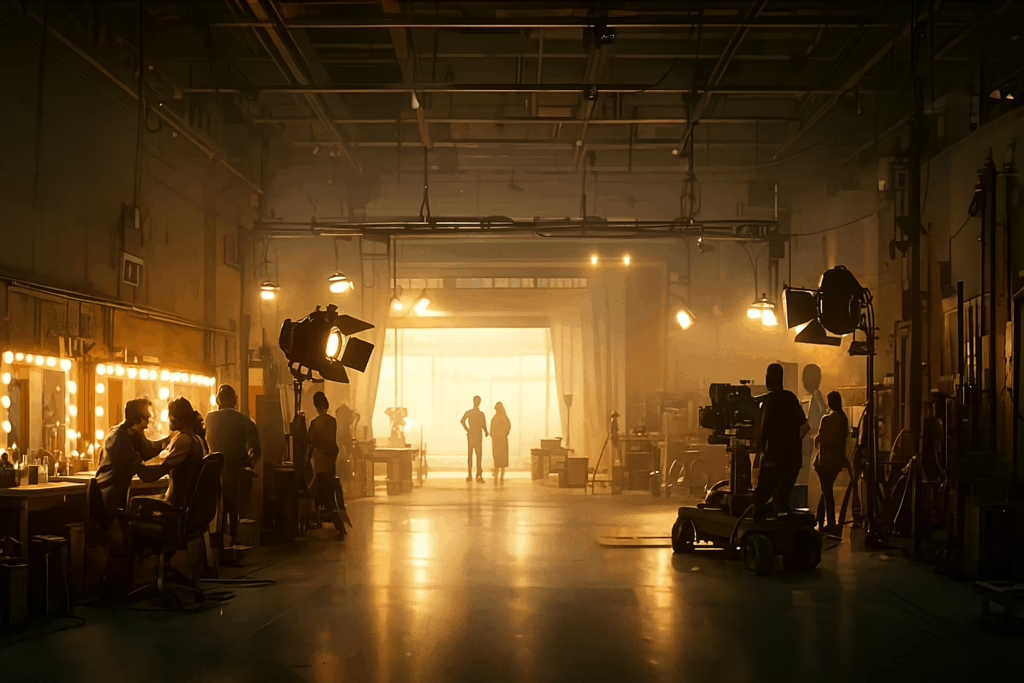
THINK AS YOU READ — Page 62
1. Did the people at Gemini Studios have any particular political affiliations?
Yes. Most staff members admired Gandhiji, wore khadi, and were opposed to Communism, although they did not fully understand political ideologies. They believed Communists were violent and dangerous.
2. Why was the Moral Rearmament Army welcomed at the studios?
They were welcomed because their plays had simple moral messages and excellent production quality, and they brought variety and excitement to the studio, which normally hosted only crowd players covered in make-up.
3. Name one example to show that Gemini Studios was influenced by the plays staged by MRA.
For years after watching Jotham Valley, Tamil stage plays began including sunrise and sunset scenes on a bare stage with a white curtain and flute music — imitating MRA style.
4. Who was the Boss of Gemini Studios?
The Boss of Gemini Studios was S.S. Vasan.
5. What caused the lack of communication between the Englishman and the people at Gemini Studios?
His accent, his serious tone, and his unfamiliar references made it impossible for the audience to understand him. Neither he nor the studio staff knew what to make of each other.
6. Why is the Englishman’s visit referred to as an unexplained mystery?
It was a mystery because nobody knew his background, and his speech did not connect with the Tamil-film audience. Only years later did the author discover his identity — the poet Stephen Spender.
THINK AS YOU READ — Page 63
1. Who was the English visitor to the studios?
The English visitor was Stephen Spender, the poet and editor of The Encounter.
2. How did the author discover who the English visitor was?
He discovered it years later while reading The Encounter in the British Council Library, where he saw Stephen Spender’s name listed as the editor.
3. What does “The God That Failed” refer to?
It refers to a book containing six essays by writers who supported Communism but later became disillusioned, including Stephen Spender. This explained the studio’s cold reaction to him.
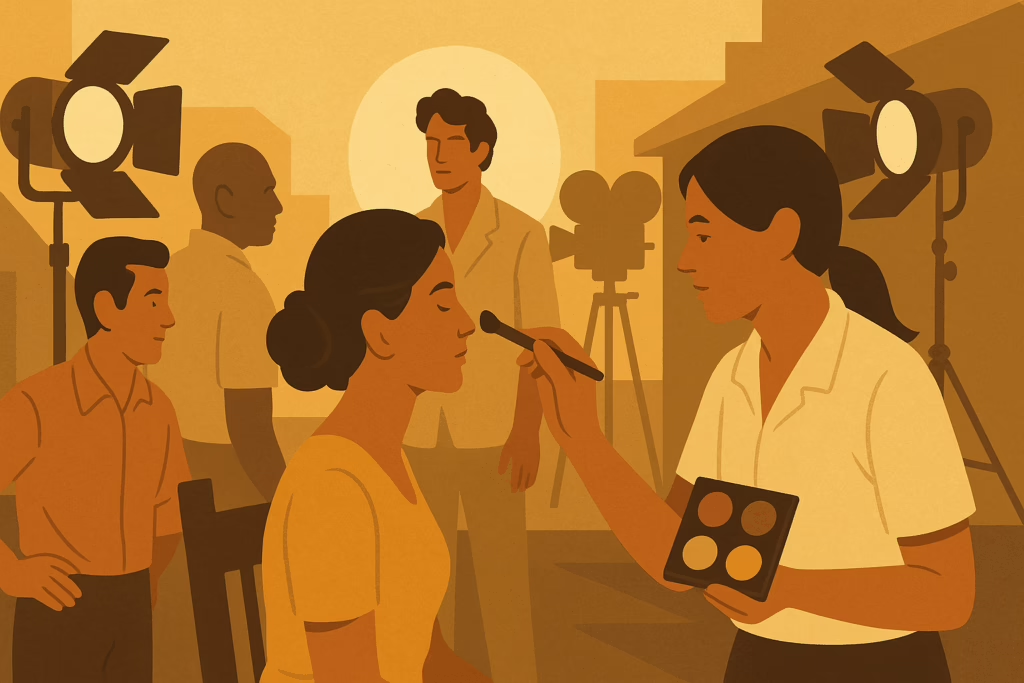
UNDERSTANDING THE TEXT
1. Gentle humour highlighting human weaknesses — examples
- The make-up men turning actors into “crimson-hued monsters.”
- The office boy’s exaggerated belief that only Subbu ruined his career.
- The legal adviser accidentally ending an actress’s career.
- Gemini poets being scared of Communism without understanding it.
These humorous descriptions make the narrative lively and entertaining.
2. Why was Kothamangalam Subbu considered No. 2?
Subbu was considered No. 2 because of his complete loyalty to the Boss, his creative brilliance, his ability to solve any film-related problem, and his contributions as an actor and writer. He defined the studio’s success.
3. Incongruity of an English poet addressing Gemini Studios
The English poet spoke about the struggles of an English poet before a Tamil film audience engaged in simple cinema. The audience couldn’t understand his accent or concerns, making his presence awkward and meaningless.
4. What do we learn about the author’s literary inclinations?
The author was deeply interested in literature. He read widely, visited the British Council Library, followed literary magazines, and recognised writers like Stephen Spender — showing his passion for reading and writing.
TALKING ABOUT THE TEXT — Discussion Points (Model Answers)
1. Film production then vs today
Early film production lacked technology, relied heavily on indoor sets, excessive makeup, and manual creativity. Today’s industry uses digital tools, CGI, advanced lighting, sound systems, and diverse global influences.
2. Poetry and films
Films can incorporate poetic imagination through storytelling, dialogue, music, and visual imagery. However, poets may find the practical demands of filmmaking restrictive.
3. Humour and criticism
Humour makes criticism gentle and acceptable. It softens harsh truths while exposing human flaws effectively, as seen in this chapter.
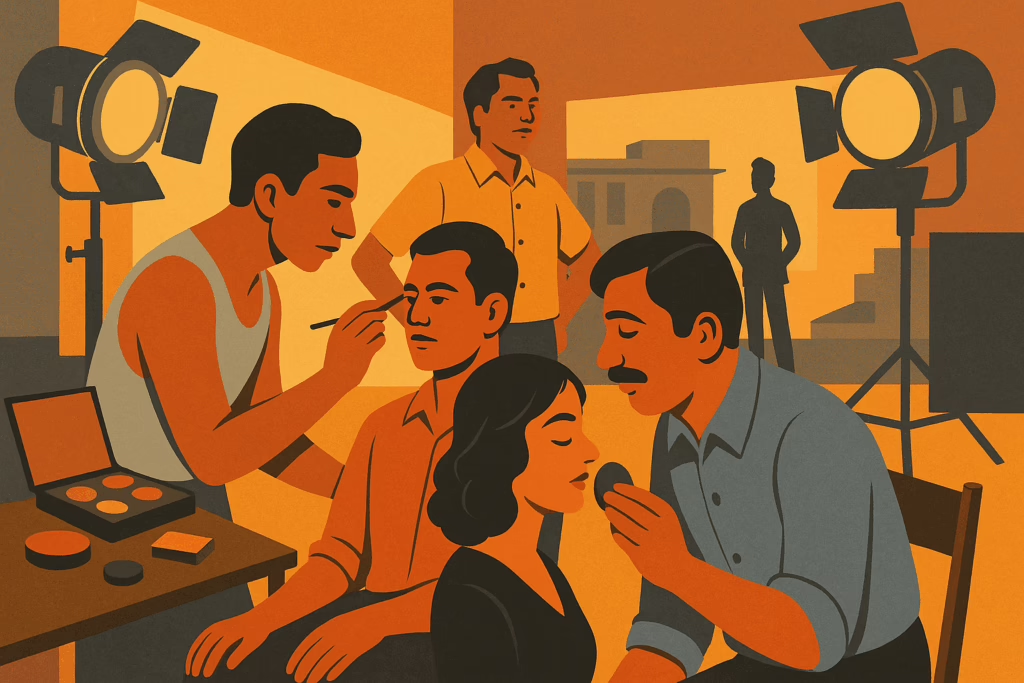
NOTICING TRANSITIONS
Main transitions in the chapter:
- Make-up department → Office boy → Subbu → Legal adviser → Poets → MRA → English poet → The Encounter → Stephen Spender
These transitions reflect a rambling, conversational style.
WRITING
Write a humorous piece about an interesting character.
I once had a neighbour, Mr. Dutta, who believed he was the unofficial “security chief” of our lane. He would patrol the area every evening armed with a torchlight and a whistle. Ironically, his torch never had batteries and his whistle never worked. Yet he would pose like a detective solving major crimes. He interrogated every visitor as if they were part of an international conspiracy. His seriousness made his behaviour even funnier, and our whole neighbourhood looked forward to his daily “secret missions.”
THINGS TO DO — Model Response
Collect cartoons that satirise politics, society, or popular culture. Analyse:
- How exaggerated features highlight human flaws
- How captions or dialogues add humour
- How the picture and text work together to criticise an issue
For example, a cartoon showing a politician sleeping in parliament with the caption “Active Leadership” satirises laziness in public office.

